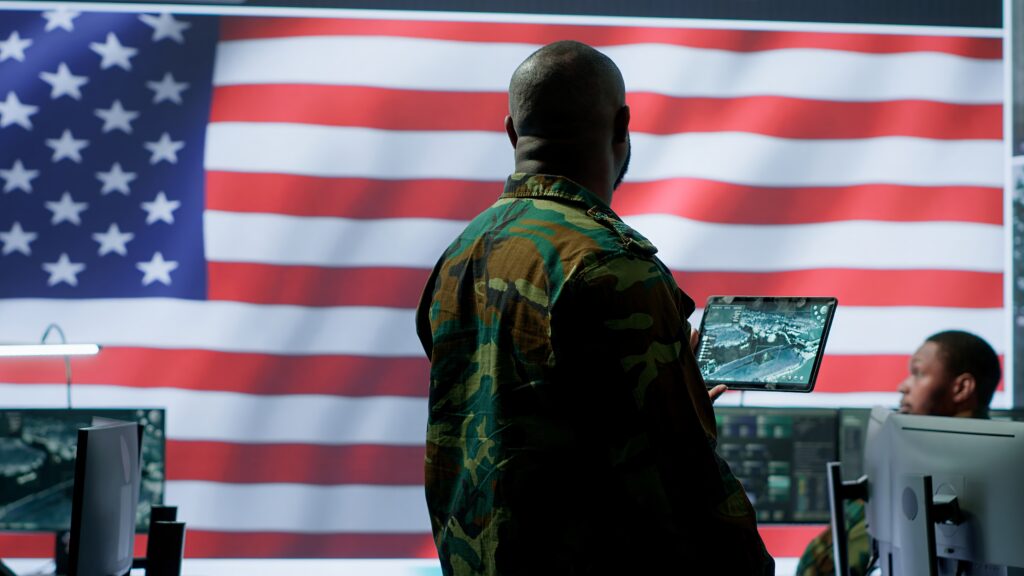The Federal Government Offers Great Opportunities For Many Types Of Businesses
The government designates a portion of the contracts for women-owned small businesses, small disadvantaged businesses, companies within historically underutilized business zones (HUBZone), and service-disabled, veteran-owned small organizations. This allows underserved groups to have a real chance to get awarded lucrative government contracts.
However, it is important to be aware of certain elements of government contracting culture to be more effective and get more contracting opportunities.
Understanding Military Culture

The Department of Defense is one of the largest consumers of government contracts in the world? Many companies think that this agency is only contracting with giant companies that supply tanks and missiles.
Remember, the Department of Defense (DoD) supplies the Army, Navy, Airforce, and many other defense agencies. They are very open to working with small businesses and are fully funded for the rest of this year. They try to reward at least 20% of their contract to Small businesses all across the nation.
To be a successful DoD contractor, it is important to have a clear understanding of military culture. One must remember that there are great complexities associated with rank and protocol. For example, addressing someone by their first name in an email is perfectly acceptable in the private sector. However, in the military, it would be an insult not to address a person by their formal title and rank.
Rules Of Timekeeping And Accounting
Government contractors have to maintain very strict schedules when compared to the private sector. Your business must comply with a set standard of rules and regulations when reporting on how many hours worked in a certain period.
The Financial Accounting Standards Board (FASB) states that contractors must comply with the following toto work with the government:
- Federal Acquisition Regulations (FAR)
- Cost Accounting Standards
- FAR agency supplements
DCAA Approval
The Defense Contract Management Agency (DCMA) helps define business systems requirements and provides direction on audits and approval criteria. Potential government contractors need to understand this agency as they define the approval criteria for awarding contracts. They also have a strong hand in guiding government audits. Speaking with them will help you with the following:
- direct and indirect cost segregation
- cost pools and allocation bases
- timekeeping
- labor distribution systems
- maintaining compliance with invoicing clauses
- avast and ever-changing complex of other issues
Simplified Procedures
In 1994 the Federal Acquisition Act or FASA simplified the buying procedures of the government.
Many of the more harsh restrictions on government purchases were removed for any purchase that was less than $100,000. Now agencies used much simpler procedures for analyzing and soliciting bids up to the $100,000 amount. However, the government is still required to advertise all purchases over $25,000 at www.fbo.gov.
These simplified procedures mean that approval levels are lower, there is much less documentation, and administrative details are not as complex. The government now has to reserve purchases that are between $2,500 and $100,000 for small businesses. The exception is the contracting officer cannot obtain offers from two or more small businesses that are competitive on price and quality
Purchases that do not exceed $2,500 individually or through the combination of multiple items are considered micro-purchases. These do not require competitive quotes but are not limited to small businesses. Micro-purchases are often made using government-issued purchase cards or typical credit cards.
Contracting Officers
The Federal Government always conducts any kind of procurement business through contracting officers. These contracting officers have the authority to bind the government to a contract unless it is otherwise stated in writing. Make sure that the person you are dealing with is the contracting officer who is authorized to represent the agency or office that is going to award the contract.
Procurement
Government procurement has always been a part of advancing many national, economic, and social objectives. Government contractors must comply with the rules and regulations of labor standard statutes. This will include the Service Contract Act, Contract Work Hours and Safety Standards Act, and other statutory requirements that further socio-economic objectives, except for certain contracts where such legislation is specifically stated as non-applicable.
Bidding

The government usually makes sure contracts are competitive through the use of sealed bidding. First, the agency makes sure that its requirements are accurate and complete. Then an Invitation For Bid or IFB is issued. The IFB will describe the type of product or service that is being procured by the government. It also includes:
- Preparation Instructions
- Conditions of Purchase
- Packaging
- Delivery
- shipping
- The payment with contract clauses to be included
- Submission Deadline
The sealed bids are opened in public at the purchasing office at the time designated in the invitation.
The bids are read aloud and then recorded. The contract will be rewarded to the bidder who has the most competitive pricing and can meet the government agency’s requirements.
Government-wide IFBs can be found at FedBizOpps which provides a direct link to the invitation. Potential contractors can search the Central Contractor Registration to identify qualified small business opportunities. Any small business that wants to sell to the government should be registered on CCR.
The System for Awards Management or SAM Directory
The absolute first thing that you must do in order to qualify for government contracting jobs is to register with the federal government supplier database, which is called the System for Award Management or SAM, for short. This is the first key step to the lucrative world of federal government contracting.
This allows you to be certified by the Small Business Administration (SBA). This gives you the Dun & Bradstreet Number (DUNS Number). Your business size will be determined to see if you qualify for the specific set aside government contracts. You will also identify Your North American Industry Classification System. Please see our many informative blogs to find out everything you need to know about SAM for small Businesses, to get an in-depth look at what is needed for lucrative federal contracting opportunities.